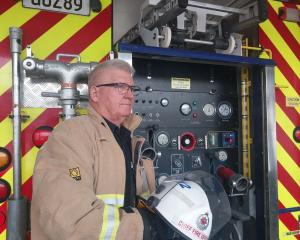
Inflation, rising food, fuel and electricity costs and a lack of affordable housing in the region — to rent or buy — are forcing families and individuals to look at going elsewhere in order to get ahead. The region’s housing woes are affecting businesses’ ability to attract and retain staff, which has flow-on effects for a range of industries — horticulture, hospitality, even our schools. While Central Otago provides a great lifestyle for people, what good is that if people cannot afford to live here?
Question 1: What role does the Central Otago District Council have to play in ensuring there is affordable housing in the region?
Question 2: What are your goals and priorities for council?
TAMAH ALLEY
Ward: Vincent.

Age: 37.
Occupation: Current CODC councillor.
Question 1: Availability of land should not be a factor in the affordability of housing in our area. Council has a role to play and should be leading the way in pragmatic rezoning and developing of land to suit a wider variety of homeowners. We should be incentivising developers to broaden their thinking and deliver more sustainable, diverse options that meet owners’ needs, whatever stage of life they are at.
Question 2: The next three years are about sensible spending. Maintaining momentum with large projects under way — Alexandra water upgrades, Clyde wastewater connections and the Riverside Park development are a priority. Ensuring we are focused on core services, building our resilience to climate change and seizing on opportunities that improve quality of life is important to me. I will continue to be a strong voice for Vincent ward’s best interests in the face of substantial central government reform.
ROGER BROWNE
Ward: Vincent.

Age: 77.
Occupation: Retired.
Question 1: The Central Otago District Council can help boost the supply of affordable housing by ensuring adequate land is zoned residential, by allowing small section sizes and by ensuring the infrastructure is in place to support new dwellings. Encouraging infill on larger, established sections will also help reduce prices. "Tiny" houses (self-contained, with one or two bedrooms) should be encouraged. However, our ratepayers should not be expected to subsidise affordable housing.
Question 2: I will listen to the community, including the rural sector, and respond to any issues of concern. I will bring my extensive governance experience to the council table. I will work to ensure adequate council funding for Central Stories Museum and Art Gallery. I will support moves by private enterprise to build retirement villages. I will support the protection of our natural heritage. I will support the council’s move towards becoming carbon neutral.
SARAH BROWNE
Ward: Cromwell.

Age: 43.
Occupation: Architectural draughtsperson.
Question 1: CODC has a responsibility to act in the best interests of all residents, including those for whom affordable housing would retain them in the region as well as current ratepayers. Council must support COAHT’s (Central Otago Affordable Housing Trust) success by way of appropriate capital and resource and a robust relationship framework agreement, to get it established and consequently servicing an appropriate model to suit our region’s needs. CODC must ensure it truly understands what affordable housing means to all.
Question 2: My goal is for an ever-evolving progressive team where knowledge is retained through returning councillors alongside a constant injection of new talent to ensure we remain relevant to those we represent. Always looking to shape future terms while doing the best for the present.
My priority is to maintain a robust action plan for emergency response for the district with confidence and strength to rebuild in the event of a natural disaster affecting our region.
LYNLEY CLARIDGE
Ward: Vincent.
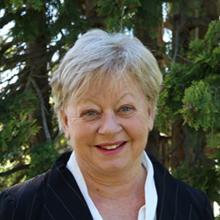
Age: N/A.
Occupation: Funeral director.
Question 1: Affordable housing is the responsibility of central government, but CODC does have a role to play.
A recent model promoted provision of 36 affordable houses in Central Otago, through a gift of council land. This is not enough housing to satisfy the need, benefiting a few, at a cost to ratepayers, many young families, struggling with inflation.
Provide smaller affordable section opportunities (infill and higher density) in harmony with other section sizes, through the district plan, working proactively with developers.
Question 2: To listen to and represent ratepayers, upon whom, while reeling from the financial devastation of a pandemic, Government are forcing the biggest reforms in 30 years.
An example being the enforced takeover of Three Water assets from local control. Which is just wrong. I want an affordable, happy, healthy, thriving community. People, businesses, heritage. We should expect nothing less.
I have experience urgently required to promote Central Otago’s best interests over the next pivotal term.
IAN COONEY
Ward: Vincent.

Age: 38.
Occupation: Restaurant manager.
Question 1: CODC can encourage diversity of housing typologies in housing developments where appropriate.
CODC is leading the way in this by seeking to ensure that residential developments on council-owned land include a range of not just section sizes, but housing types. More specifically apartment, terraced, semi-detached and detached housing.
Council can influence affordability through spatial planning that accommodates and encourages housing diversity, and thus provides a range of housing options.
There is a need to be careful that involvement in the housing market is not too intrusive, or difficult to administer and sustain long term.
Question 2: My goals and priorities for council are to provide resilient, reliable infrastructure, responsible planning and safe community spaces for the people of Central Otago.
JAYDEN CROMB
Ward: Vincent.

Age: 27.
Occupation: Maori and Pacific Covid support.
Question 1: Council has an obligation to work with central government, NGOs and private business to ensure that affordable housing is accessible to everyone who calls Central Otago home. Our area is experiencing a worker shortage, wages below the national average and a median weekly rent of $480. This combination makes Central Otago unattainable for many low-income earners and young families. This affects our local businesses and our community as a whole.
Question 2: Central Otago is going through a period of rapid growth, which brings with it challenges but also great opportunities. My main priorities are working towards a model of affordable housing that benefits renters and first-time buyers without overburdening ratepayers. Promoting growth in Alexandra, Clyde and Omakau while protecting the environment. And encouraging others to engage with local government with the issues that matter to them and their families.
SALLY FEINERMAN
Ward: Teviot Valley.

Age: 54.
Occupation: Roxburgh retail business owner.
Question 1: This is a complex issue as the district needs affordable housing to attract and keep staff. However, the impact of affordable housing shouldn’t fall on the ratepayers and jeopardise projects going ahead for the benefit of the wider community. Instead, CODC should seek opportunities to collaborate, find funding from the government, or other external sources, and work with the Central Otago Affordable Housing Trust.
Question 2: Having a voice for the Lake Onslow battery project. This will significantly impact our community and district. I want to be responsive to local conditions, particularly what we need to do to mitigate climate change risks.
I want to ensure we have vibrant communities to support the local economy and visitors alike. I am open to fresh ideas and getting things done; I am the Roxburgh swimming pool rebuild project committee chair.
DAVID GEORGE
Ward: Cromwell.

Age: N/A.
Occupation: N/A.
Question 1: The council has oversight and provides a platform for issues and concerned about housing.
Question 2: To have a high-quality presentation of heritage, which is affordable.
To have input in to the freedom camping Bill. To ensure that local ratepayers have access.
To provide support towards the influx of cyclists through the cycling network.
To monitor and oversee the provision of child care in the region. To free parents up for work.
NEIL GILLESPIE
Ward: Cromwell.

Age: 61.
Occupation: Contact Energy community relations and environment manager.
Question 1: Council should set a policy framework so the district plan enables affordable housing options into the market. That then leaves the question as to "what role does the community, from council funds, have to fund/provide affordable housing?"
The community have signalled that there’s an appetite for gifting council land to a secure homes model. Council chose not to progress that further but still needs to look for options for those views to be provided for.
Question 2: Council must strive to provide levels of service expected by the community and provide for future growth of the district while ensuring the costs are balanced against the benefits for ratepayers.
The community deserves councillors who are engaged with our community, approachable and experienced especially with the development and delivery of large infrastructure projects, the Cromwell Memorial Hall and town centre projects.
We must deliver on community needs and aspirations for now and the future.
CHERYL LAWS
Ward: Cromwell.
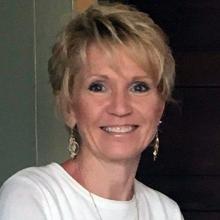
Age: N/A.
Occupation: Assistant manager — cellar door, current CODC councillor and Cromwell Community Board member.
Question 1: The CODC is in the unique position of owning land and, in the case of Cromwell, developing that land in partnership with the private sector. This has the effect of reducing land/building costs compared with other districts. "Affordable housing" though is literally a ratepayer subsidy for the privileged few. I support the CODC’s more even-handed approach.
Question 2: My primary goal for Central Otago is a council that improves the quality of life for all its residents — that adopts family-friendly strategies with the associated recreational amenities, that communicates effectively and sincerely with our diverse communities, and that ensures that Central is the place to live, work, play and create commercial opportunities.
NIGEL MCKINLAY
Ward: Cromwell.

Age: 75.
Occupation: Vineyard owner-operator and current CODC councillor.
Question 1: Keep rate increases low, have a good district plan and efficient and cost-effective processing of consents. In Cromwell a community board-led subdivision will offer different house types — apartments, duplexes — as well as stand-alone sections, that will offer a range of price points, not just "one size fits all". Council should build on this initiative through the district.
Question 2: Continue opposing Three Waters, which will take away local assets and local control. To oppose its co-governance provisions, which will change our democratic system.
Cromwell and district have big projects under way. Completing the new Cromwell hall and town centre upgrade; finishing Clyde’s and Alexandra’s water and wastewater projects. Continue implementing council’s sustainability strategy, including organic and green-waste bin collection from next year. I am keen to continue to contribute to the business of council.
MARTIN MCPHERSON
Ward: Vincent.
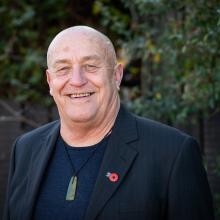
Age: 65.
Occupation: Event manager and current CODC councillor.
Question 1: Affordable housing is a national issue, one that offers huge challenges to local government. Currently I have not seen a model that works for Central Otago. We need to keep pressure on and lobby central government and work with housing agencies who have experience in this area. Changes to planning rules that encourage more infill housing and incentives to build smaller homes and apartments will allow property prices to fall, making new homes affordable.
Question 2: I have lived, worked and played in Central Otago for 30 years. I enjoy this community and its people.
We live in a rapidly developing and changing community. This district is facing many challenges. Reforms to Three Waters, RMA and local government will see significant changes in our community. We will need an experienced and steady hand on the wheel of local government to steer us through these challenges. I have that experience.
SHANE NORTON
Ward: Cromwell.

Age: 59.
Occupation: Radio announcer.
Question 1: Central government is unlikely to do what is required with affordable housing, leaving local government to make it happen.
The CODC is in good position to do this and, I believe, should take a leading role.
Question 2: My goals for council are free sport and recreation for all, including swimming pools.
Council to be more proactive on the Kawarau Arm issue.
More council investment in art and culture, including music.
TRACY PATERSON
Ward: Vincent.
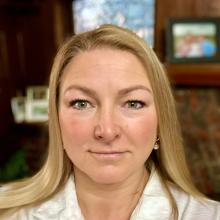
Age: 46.
Occupation: Farmer and current CODC councillor.
Question 1: For the CODC to step into this space I believe that we need to start small, get the structure right to ensure a sustainable future and we need to be able to easily access central government funding support. As a small council I feel that we must balance very carefully the needs of all of our community and their differing requirements. The long-term goal should be to have a diversified portfolio of "affordable housing" that is cost neutral to local councils.
Question 2: Coming to the end of my first term as a Vincent ward councillor I am passionate about the Central Otago district and ready to navigate the changes ahead. Being from a rural background I am conscious that we need to have balanced representation around the table. I am a big believer that core business needs to be prioritised and that the whole community benefits when this is done to a high standard and on time.
MASON ROBINSON
Response not received by deadline.
BOB SCOTT
Withdrawn from campaign, community board-elect.
MAURICE VAUGHAN
Ward: Vincent.
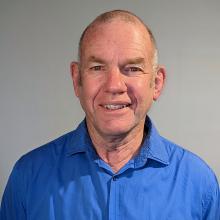
Age: 65.
Occupation: Landlord.
Question 1: Housing has been identified as a serious issue nationwide.
CODC has maintained a commitment to the provision of social/pensioner housing and this needs to be maintained. In the face of systemic government failure on this issue I would promote to council a local development bank similar to the Bank of North Dakota in the US.
This bank was established in 1919 to promote regional financial independence and credit supply for the community. The bank survived the Great Depression and the global financial crash in 2008. Such a bank would create a viable and ethical investment option for locals. It of course could be used to fund housing.
Question 2: Stop government undermining local government control. Government overreach is a concern and Three Waters is an example of government making local democracy irrelevant.
I am also concerned that national governments are failing worldwide and local control and independence will become more important in a recession and high interest rate environment. Local decision-making to resolve local problems will become very important when the government revenue decline worsens during a recession.
In relation to these concerns food chain security and fostering agriculture and local food production will be a vital issue.

